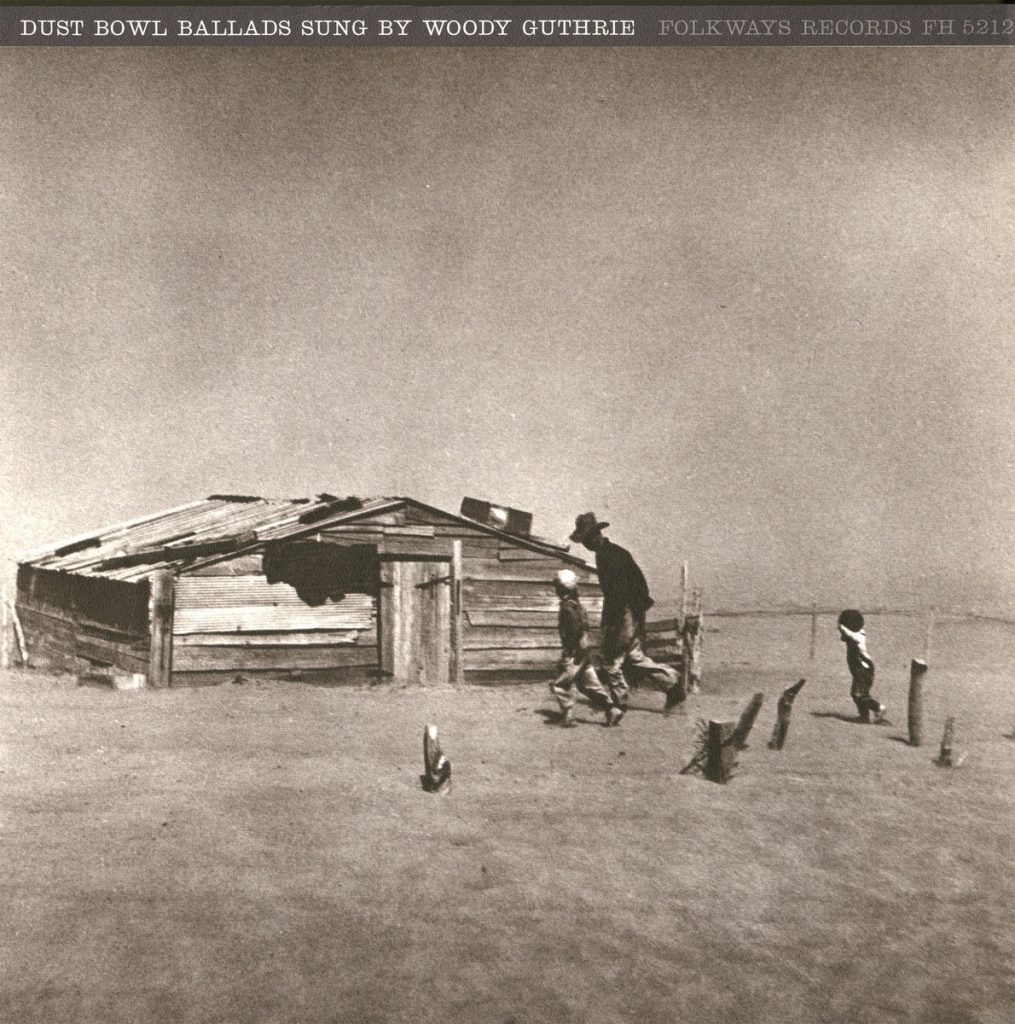
Released in 1940, Woody Guthrie’s first commercial recording Dust Bowl Ballads is widely cited as the first concept album. Based on both his personal experiences and John Steinbeck’s novel The Grapes of Wrath it details the 1930s Dust Bowl era during the Great Depression when farmers were dispossessed of their land due to weather conditions and bank foreclosures. This resulted in the exodus of farmers to California from Oklahoma and other localities.
On the liner notes for the 1950 Folkways Records reissue, Woody Guthrie stated:
“I’ve lived in these duststorms just about all my life. (I mean, I tried to live). I met millions of good folks trying to hang on and to stay alive with the dust cutting down every hope. I am made out of this dust and out of this fast wind and I know that I’m going to win out on top of both of them if only my government and my office holder will help me. I wrote up these eight songs here to try to show you how it is to live under the wild and windy actions of the great duststorms that ride in and out and up and down.”
The album influenced several socially conscious artists, including Pete Seeger, Bob Dylan, and Bruce Springsteen. Springsteen’s “Ghost of Tom Joad” was inspired by The Grapes Of Wrath and Guthrie’s “Tom Joad” off Dust Bowl Ballad. He gave the narrative a modern-day context.
In Hard Hitting Songs for Hard-Hit People, a book of protest songs compiled by noted music archivist Alan Lomax, Steinbeck wrote of Guthrie: “Harsh voiced and nasal, his guitar hanging like a tire iron on a rusty rim, there is nothing sweet about Woody, and there is nothing sweet about the songs he sings. But there is something more important for those who will listen. There is the will of the people to endure and fight against oppression. I think we call this the American spirit.”
